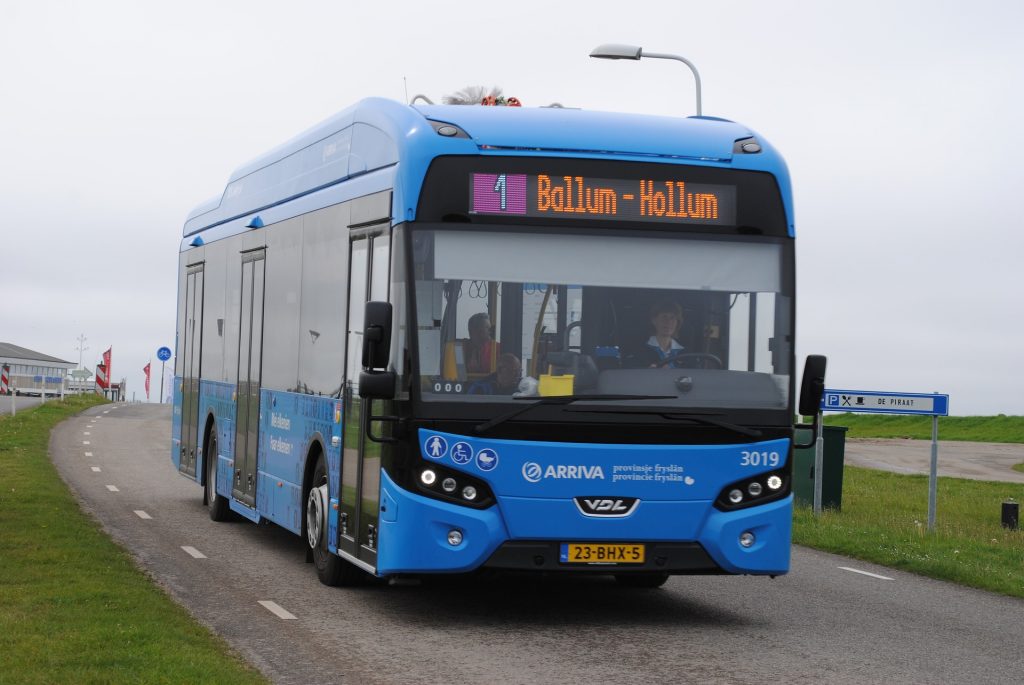By Bonner Cohen, Ph. D.
By replacing its fleet of diesel-powered buses with sleek (and taxpayer-subsidized) electric buses, the transit system run by Jackson and Teton County, Wyoming, was set to transition to a green, “climate-friendly” future.
Instead, all eight electric buses purchased by Southern Teton Area Rapid Transit (START) have broken down, and when any of the vehicles will be up and running again is anyone’s guess. Help is not going to be on its way anytime soon because California-based Proterra, the company that manufactured the defective buses, has declared Chapter 11 bankruptcy. Once a darling of the Biden administration’s vaunted “energy transition,” the company cannot say when – if ever – spare parts will come to the rescue.
“We’re evaluating our options to see how we can work through that and make sure they can be on the road,” START Director Bruce Abel told Cowboy State Daily (Sept. 26). Local officials are bracing for a long wait, with Jackson Councilman Jimbo Rooks saying the company’s bankruptcy was “a real punch in the gut.”
START still has 23 diesel buses in its fleet, which are working fine. But the electric buses were plagued with problems as soon as they went into service. Winters in Wyoming can be cold, and EV batteries do not perform to standard in freezing temperatures, a fact perspective EV buyers should consider before they shell out real money for these vehicles. Specifically, EV batteries’ efficiency declines markedly in cold weather, curtailing EVs’ already limited range. What’s more, the batteries needed to power electric buses and trucks are so heavy that they tear up roads and bridges at an alarming rate, adding to the infrastructure problems associated with EVs.
Biden and Granholm: Fans of Proterra
Proterra CEO Gareth Joyce could provide little more than a boilerplate when trying to explain his company’s misfortunes, saying in a press release that the company faced “various market and macroeconomic headwinds that have impacted our ability to efficiently scale all our opportunities simultaneously.” He didn’t say why the buses he supplied to his customer in Wyoming broke down.
This wasn’t the way things were supposed to work out. The company got its mitts on some of the $5.5 billion in federal handouts for low- and no-emission bus manufacturers contained in the Bipartisan Infrastructure Act, along with the cash it got from investors eager to plow money into green projects. As noted by the Cowboy State Daily, President Joe Biden participated in a virtual tour of the company in 2021.
“The fact is, you’re making me look good,” Biden said before touting his plan to provide 50,000 charging stations nationwide.
Biden isn’t the only member of his administration to be a fan of Proterra. Jennifer Granholm invested in the company and sold her stake AFTER she became Biden’s energy secretary for a net capital gain of $1.6 million. She got out before the roof fell in.
On the Road with the Energy Secretary
Granholm’s eagerness to plug EVs led her on an ill-fated, four-day road trip from Charlotte to Memphis in June that included a testy exchange with local law enforcement officers in North Carolina. An Energy Department staffer, prudently driving a gasoline-power car, blocked a family in an EV from recharging to allow Granholm to recharge her vehicle first.
On September 25, the House Oversight Committee launched an investigation into Granholm’s EV excursion.
“This taxpayer-funded publicity stunt illustrates yet again how out of touch the Biden administration is with the consequences of policies it has unleashed on everyday Americans,” Oversight Committee Chairman James Comer, R-KY, and fellow committee member Pat Fallon, R-TX, wrote in a letter to Granholm.
The committee demanded information by Oct. 10 about the purpose, costs, and planning of the trip, which covered 770 miles. Comer and Fallon also requested a staff-level briefing by Oct. 3, The Washington Times reported (Sept. 27).
Don’t look for a prompt response from Granholm and her minions.
Bonner R. Cohen, Ph. D., is a senior policy analyst with CFACT, where he focuses on natural resources, energy, property rights, and geopolitical developments. Articles by Dr. Cohen have appeared in The Wall Street Journal, Forbes, Investor’s Busines Daily, The New York Post, The Washington Examiner, The Washington Times, The Hill, The Epoch Times, The Philadelphia Inquirer, The Atlanta Journal-Constitution, The Miami Herald, and dozens of other newspapers around the country. He has been interviewed on Fox News, Fox Business Network, CNN, NBC News, NPR, BBC, BBC Worldwide Television, N24 (German-language news network), and scores of radio stations in the U.S. and Canada. He has testified before the U.S. Senate Energy and Natural Resources Committee, the U.S. Senate Environment and Public Works Committee, the U.S. House Judiciary Committee, and the U.S. House Natural Resources Committee. Dr. Cohen has addressed conferences in the United States, United Kingdom, Germany, and Bangladesh. He has a B.A. from the University of Georgia and a Ph. D. – summa cum laude – from the University of Munich.
Originally posted at CFACT, republished with permission.
To read more about issues with electric busses, click here.
To read more about EV infrastructure, click here.
